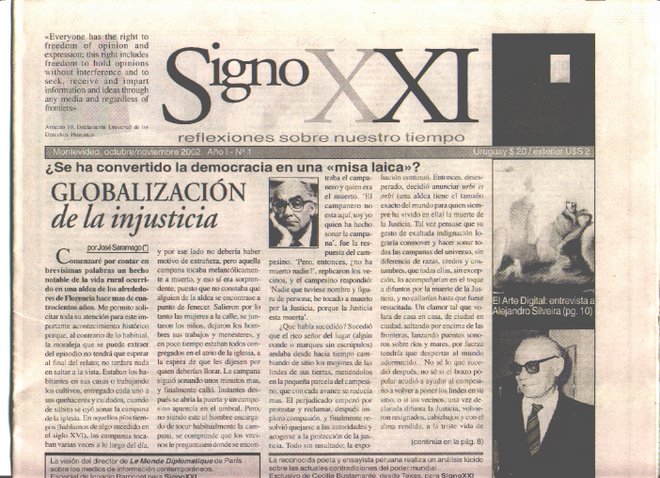Writers Set to Strike, Threatening Hollywood

Writers Guild of America members read a sign as they exited their WGA meeting in Los Angeles after discussing contract negotiations on Thursday.
LOS ANGELES, Nov. 1 — Hollywood’s two decades of labor peace shattered Thursday night, as movie and television writers declared they would embark on an industrywide strike for the first time since 1988, when both writers and Teamsters walked out.
The writers’ union said it would inform its members no later than Friday afternoon as to when the strike would begin, according to a person who attended a union gathering Thursday night at the Los Angeles Convention Center.
The strike would pit union writers, whose position has been eroded by reality television and galloping technological change, against studios and networks that are backed by big corporate owners like General Electric and News Corp., but are also unsure of the future.
The walk-out threatens an instant jolt to television talk shows like “Late Night With David Letterman” and “The Daily Show With Jon Stewart,” which rely on guild writers to churn out monologues and skits. And if the strike drags on, audiences could see the eventual shutdown of soap operas, TV series and movie productions, as they exhaust their bank of ready scripts.
In the near term, a writers' strike will have an immediate impact on more than 200,000 workers in the movie and TV industry here and the thousands more who produce or sell entertainment elsewhere in the United States and abroad. The dispute may also signal more labor trouble to come, as directors and actors face similar issues when their contracts expire next June.
Over the long haul, multiple strikes could lead to a drastic overhaul of the economics of Hollywood. They could redefine the industry’s relationship with its highly unionized work force at a time when DVD sales are cooling and changing movie and TV markets have workers and companies alike vying for their perceived fair share of a yet-to-be-identified next digital bonanza.
“I’m afraid that everybody’s in for a terrible time,” said Norman Lear, the writer, producer and entrepreneur whose career spanned the disruptions of the 1980s — when Hollywood weathered five strikes by its guilds — and the years of relative peace that preceded and followed that tumultuous decade.
The leaders of the Writers Guild of America West and the Writers Guild of America East were expected to order their roughly 12,000 members covered by a contract with the Alliance of Motion Picture and Television Producers to stop work and be assigned picket duty when the strike begins.
The strike call follows more than three months of contentious negotiations. Ultimately, the two sides gridlocked over the writers’ insistence on a sharp increase in their residuals payments for the re-use of movies and shows on DVDs and on new payments for the distribution of such works on the Internet, over cell phones and elsewhere. Producers refused to boost the DVD payments and rebuffed demands related to electronic distribution, arguing that industry economics and still-shifting technology made accommodation impossible.
In a statement issued Thursday night, J. Nicholas Counter III, president of the producers’ alliance, said: “By the W.G.A. leadership’s actions at the bargaining table, we are not surprised by tonight’s recommendation. We are ready to meet and are prepared to close this contract this weekend.”
A strike by the writers threatens to tear a hole in the economy of Southern California, even as it already copes with a collapse in home sales and widespread devastation from last month’s fires.
The entertainment industry contributes an estimated $30 billion annually, or about 7 percent, to the economy of Los Angeles County, according to Jack Kyser, chief economist for the Los Angeles County Economic Development Corp.
Show business also helps drive the local tourist economy. “If tourists see that the entertainment industry is shut down, we worry they will think the entire city is shut down,” said Mr. Kyser. He noted that restaurant business in the southeast San Fernando Valley — home to Universal Studios and the largest concentration of production — has already dropped 30 percent as anticipation of the strike grew in recent weeks.
Indeed, most of those affected by such a strike have no direct stake in its issues.
The New York-based book industry, for instance, may find studios reluctant to buy film rights to new works at a time when no writers are available to adapt them for the screen. “In the first part of a strike, buyers will be sitting and waiting to see if it gets resolved,” said Amy Schiffman, who specializes in literary sales for Hollywood’s Gersh Agency.
Similarly, thousands of businesses, whether mom-and-pop companies that train dogs for television shows or lumber yards that specialize in building materials for sets, face possibly dire consequences, some sooner than others.
-------------------------------------------------
Ir al Sitio principal Escritos críticos / Ensayos
www.majfud.50megs.com
Reflexiones sobre nuestro tiempo
-------------------------------------------------




No hay comentarios.:
Publicar un comentario